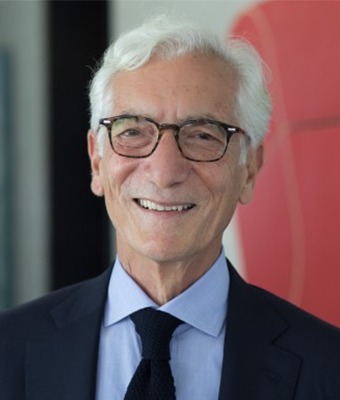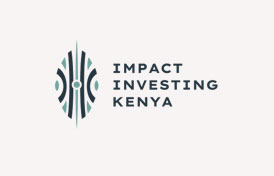Impact Investing in Africa
Deploy your capital to intentionally create a positive social impact
Course Overview
Impact investing is an investment strategy that focuses on reducing the negative social and environmental effects of business while generating positive financial returns. Our specialised Impact Investing in South Africa course is designed to equip wealth managers, consultants, funders, and other financial intermediaries, with a wealth of expertise in this rapidly growing field.
This course is hosted by the Bertha Centre for Social Innovation and Entrepreneurship at the UCT Graduate School of Business.
What you will walk away with
- A sophisticated understanding of the impact investment ecosystem globally, with best practices on how to balance risk, return and impact
- Insight into how to develop an impact investing strategy
- An understanding of the process of building an effective impact investment portfolio through either intermediaries and/or direct investments
- Practical skills in due diligence, investment selection and valuation of impact investments
- Exposure to global and African best practices of implementing impact investment strategies from leading experts in the field
- An understanding of the opportunities in emerging technologies (AI, the Blockchain, remote sensing and Iot) and impact investing
- The ability to discuss and operate in the rapidly emerging field of impact investing and its ecosystem globally, with a specific focus on Africa.
INSPIRE POSITIVE CHANGE IN THE DEVELOPING WORLD
Learn how to cultivate inclusive economic growth, alleviate poverty, and uplift communities using the financial instruments at your disposal. Support entrepreneurs and infrastructure projects and inspire long-lasting and meaningful change through strategic investing.
Additional Course Information
Module Breakdown
Curriculum Overview
Module 1
Impact Investing Eco-System and Relevance
- Develop a sophisticated understanding of the impact investment ecosystem, globally and across the continent.
- Delegates will explore the current state of the impact investing ecosystem and delve into its relevance within the broader financial landscape. From increased mainstream integration to potential challenges hindering its growth, this module aims to shed light on the multi-faceted aspects of impact investing and its evolving role in shaping a more sustainable and responsible global economy.
Module 2
Designing an Impact Investing Strategy
- Best practices for building a pipeline and performing due diligence with an impact lens across multiple sectors and asset classes.
- This module sets the stage for an exploration into the intricacies of crafting such a strategy. From defining investment objectives to evaluating impact metrics and navigating the complexities of various sectors, the content delves into the essential components of designing an impact investing strategy.
Module 3
Evaluating, Structuring, and Managing Direct Investments and Investments through Intermediaries
- Create impact measurement and management strategies and understand the complexities of impact deal structuring.
- Explore strategies and considerations that underpin effective evaluation, structuring, and management of investments, contributing to informed and impactiul decision-making in the realm of finance.
Module 4
Building Impact Investing Portiolios
- How to build your strategy and manage your impact portiolio.
- A Comprehensive exploration of the methodologies, considerations, and practices essential for constructing a purposeful and well-managed impact investment strategy
Module 5
Emerging Technologies
- This module aims to shed light on the emerging trends, innovations, and strategies that are poised to shape the next chapter in impact investing. From the advent of blockchain and artificial intelligence to the evolution of impact measurement tools, understanding the symbiotic relationship between technology and impact is crucial for staying at the forefront of positive change.
Minimum Requirements:
- National Senior Certificate, NQF 4 or equivalent
- English proficiency
- 3 years work experience
Who should apply:
This course is designed for asset owners who are eager to gain insights into effective capital allocation for impact, and it is particularly relevant for Development Finance Institutions, Diversified Financial Institutions, Family Offices, Foundations, and Pension Funds.
What our students say
Learn with the best
Our Internationally acclaimed researchers and teachers are all dedicated and gifted individuals who contribute directly to UCT GSB's reputation of excellence.

Course Convenor

Course Convenor

Course Convenor

Faculty

Faculty

Faculty

Head: Executive Education

Client Liaison Officer

Network Partner
Impact Investing Kenya is a unique multisectoral platform with a mission to mobilise private sector capital towards inclusive, measurable, and sustainable development outcomes in Kenya. Established as an alliance of philanthropy and private sector networks, its goal is to drive private sector investment towards SDG financing and social enterprise. By bridging the gap between philanthropy and capital markets, Impact Investing Kenya fosters innovative and sustainable finance solutions that deliver both social impact and long-term financial returns.
As part of its commitment to building a robust impact investing ecosystem, Impact Investing Kenya proudly supports the UCT GSB Impact Investing in Africa course and actively recommends it to its networks.
FAQ
- 10% Groups of 3 or more
- 15% Alumni of UCT, GSB Academic and Executive Education programmes (proof required)
- 10% NPO/NPC (proof required)
The UCT GSB's Breakwater Campus is situated in the heart of Cape Town's most popular tourist attraction, the Victoria and Alfred Waterfront. Centrally located and easily accessed, the UCT GSB is just 1.5km away from the central business district and 20 minutes from Cape Town International Airport.
As an added benefit to studying at the UCT GSB, you'll be situated in one of the most beautiful cities in the world.
Flights & accommodation costs are not included.
The course is a non-credit-bearing course delivered at the equivalent of an NQF 8 postgraduate level of study.
The course is accredited through UCT, which is a registered public higher education institution with the Council on Higher Education (CHE). Each programme is accredited through an internal UCT quality assurance process, as delegated by the CHE, ensuring the excellent quality of our offering.
In short, this course does not refer to NQF levels.
TAKE THE FIRST STEP TODAY
Acquire new competencies and move your career to the next level!
Ideas Exchange

How the rules that govern our economies can change
Impact investing offers a promising solution to address the world’s social, environmental, and economic challenges. By merging financial returns with measurable positive impacts, it’s reshaping how we think about investment. However, achieving the balance between profitability and true societal impact isn't always easy. This article delves into the complexities of impact investing and how we can rethink the rules to build more sustainable economies.
Read Article
Supporting impact investment initiatives in Africa
Africa must take charge of its own development agenda, and while impact investors can support it, they must also be supported with a collaborative and research-backed approach from African stakeholders. Here is what is being done in this regard, and how it can benefit all those involved.
Read Article
UCT GSB grows Impact Investing education in Africa
Growing impact investing capacity in Africa could unlock the continent’s potential. In 2024, the UCT Graduate School of Business is taking its Impact Investing in Africa course to Kenya for the first time – and working to create uniquely African impact investing solutions to uplift the continent
Read Article
The Inuagural Africa Impact Summit 13-14 July 2023
The inuagural Africa Impact Summit, hosted by the GSB Bertha Centre, took place on 13-14 July 2023 in Cape Town. Speakers included GSB Dean Dr Catherine Duggan, Richard Perez of the d-school Afrika and Director of the Bertha Centre Solange Rosa.
Read ArticleRelated Courses

LEAD Campus Sustainable Leadership In Africa

Managing New Power Markets And Regulation In Africa

